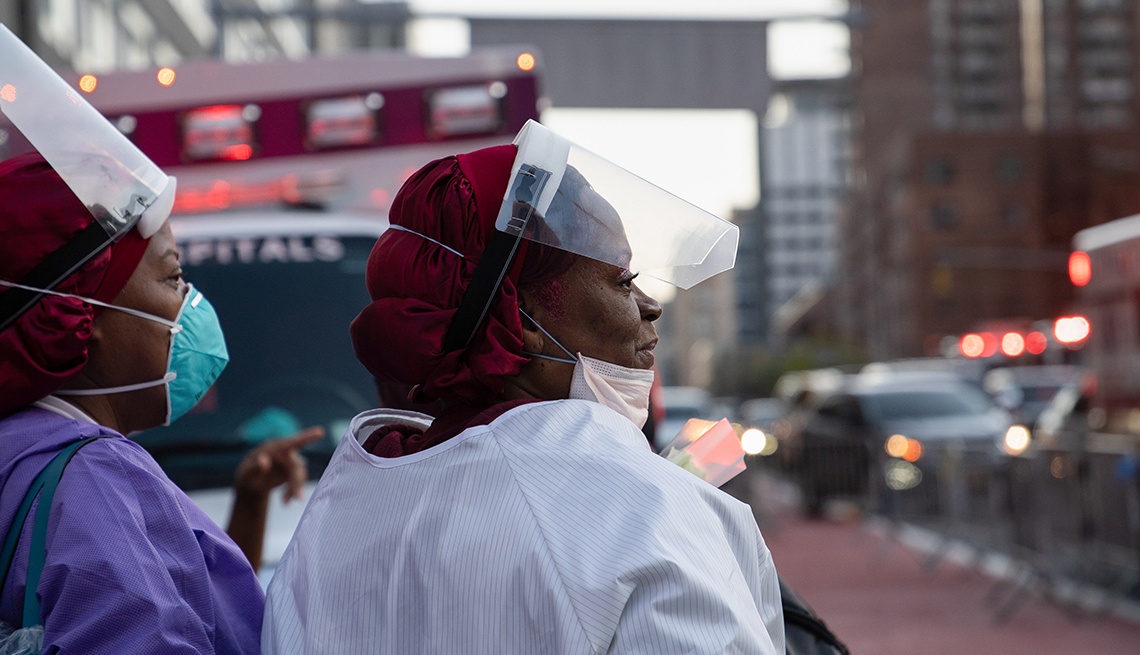Staying Fit
Older Black and older female workers may be more susceptible to the economic and health fallout of COVID-19 than others because they are overrepresented in “sideline” jobs that are vulnerable to economic downturns as well as in “frontline” jobs in the health care, transportation and construction fields, a new report has found.


AARP Membership— $12 for your first year when you sign up for Automatic Renewal
Get instant access to members-only products and hundreds of discounts, a free second membership, and a subscription to AARP the Magazine.
In analyzing data from the Current Population Survey published by the U.S. Census Bureau, the report from the New School's Schwartz Center for Economic Policy Analysis found that older workers in general but especially older women and older Black workers are more likely to be employed in the riskier jobs. For example, while 10 percent of all workers age 50 and older are Black, the rate is more than double — 21 percent — in the personal care and home health aide industry.
"The deadly and debilitating effects of COVID-19 are amplified for older workers because their immune system gets weaker and pre-existing conditions increase with age,” the report noted. “Up to 86 percent of people between 55 and 64 have some type of pre-existing condition."
Along with physical health, economic health is also acutely affected by the coronavirus outbreak, the researchers wrote. Job loss, for one, “leaves older workers more vulnerable than younger workers to long spells of unemployment, lower future wages, and involuntary retirement."
The “frontline” and “sideline” jobs are in stark contrast, the report found, to “safe” jobs “where workers have the option of working remotely and therefore face less risk of unemployment or falling ill."
































































